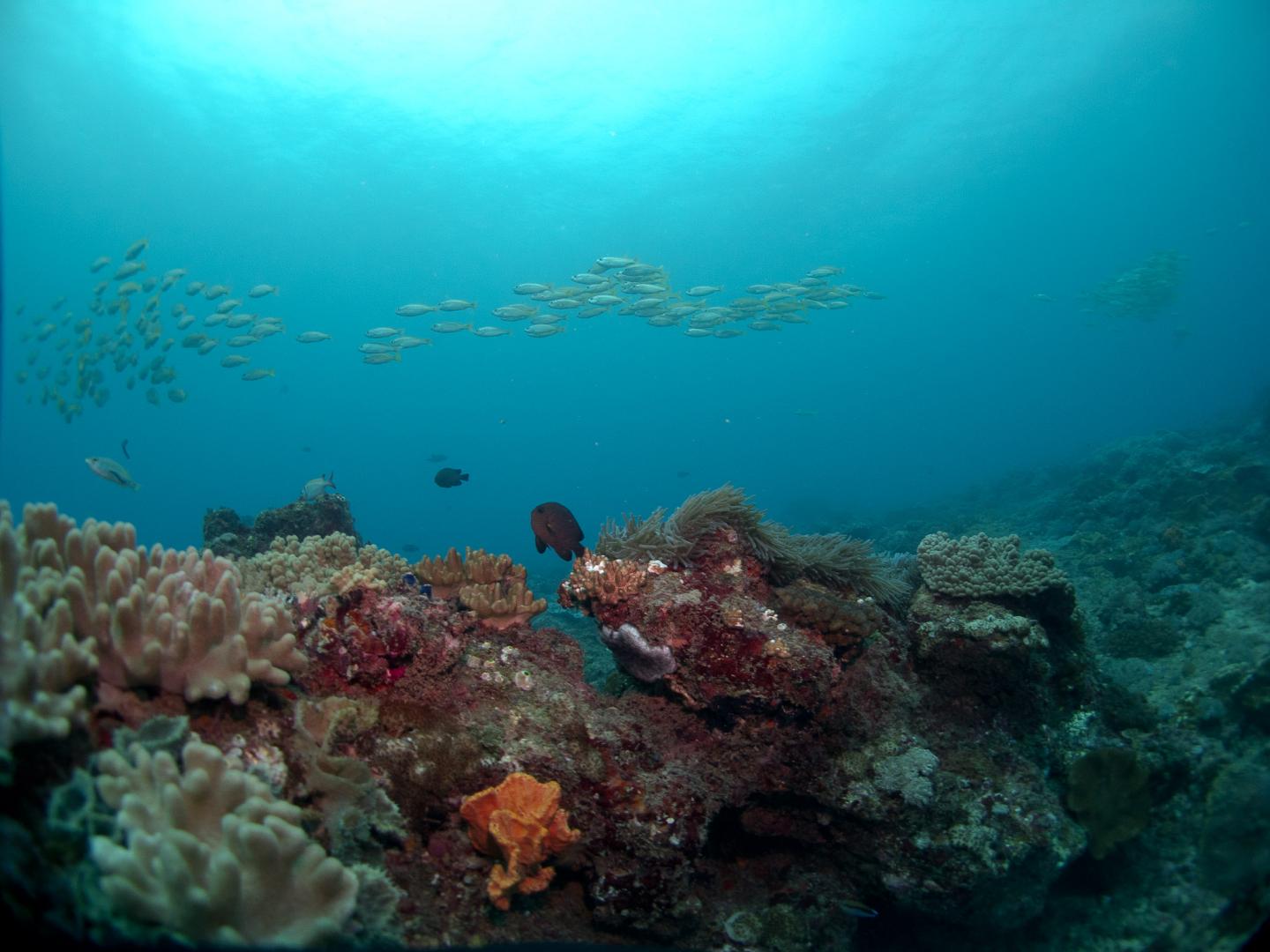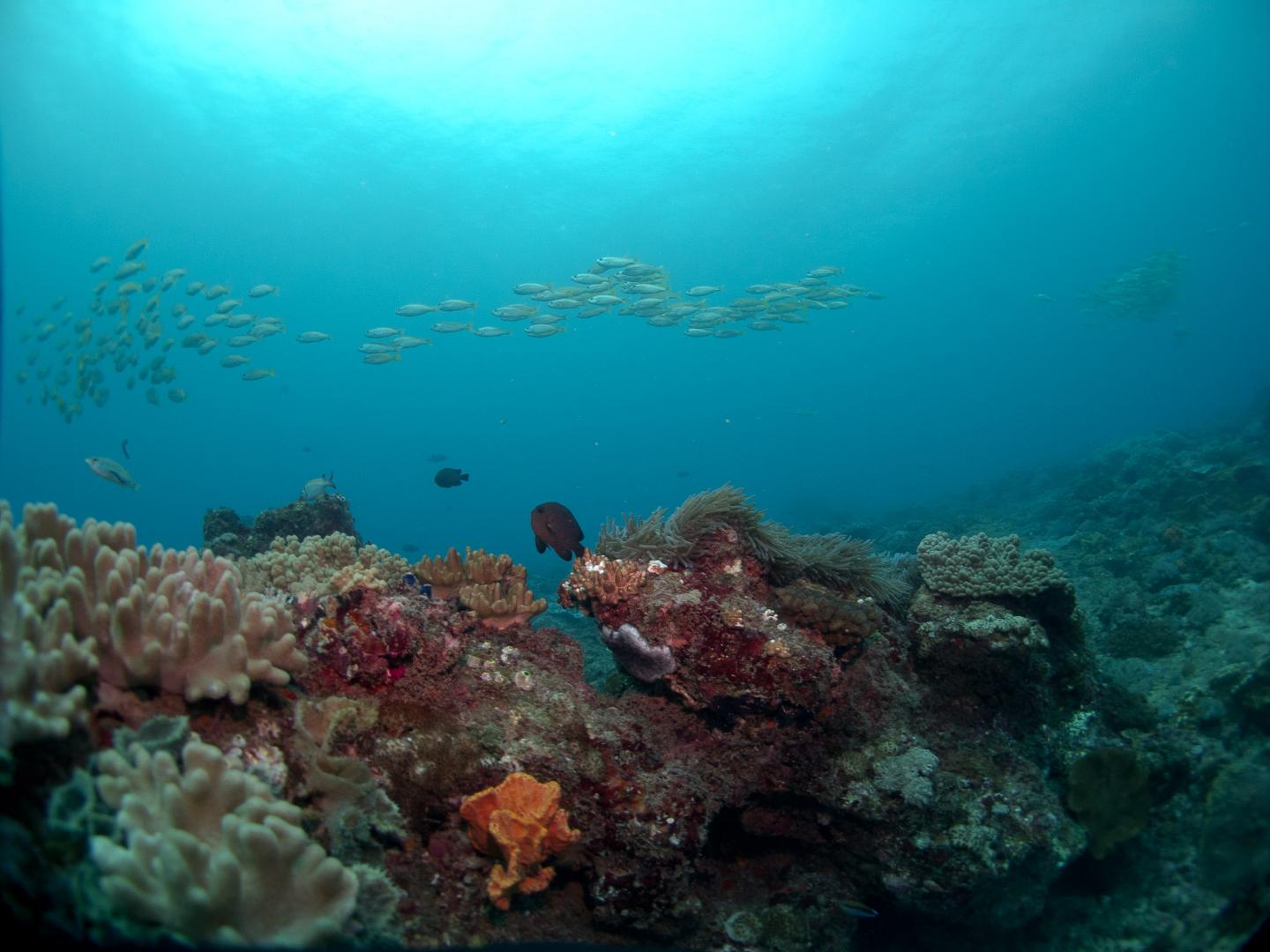
Credit: E. Darling/WCS
NEW YORK (June 13, 2018)– An age-old challenge of determining the right amount of fish to harvest from the sea has finally been overcome with the creation of a new biomass-yield model that captures all the necessary factors for accuracy, according to a new WCS (Wildlife Conservation Society) study.
The study titled "Multicriteria estimate of coral reef fishery sustainability" appears online in the journal Fish and Fisheries.
Knowing the highest volume of fish that can be taken from coral reefs without harming these ecosystems (known as the maximum sustainable yield) has been elusive for many reasons. Among the largest difficulties has been determining accurate estimates of recovery rates of coral reef fish populations that have been fished. Another has been confirming predictions through long-term study of the stability of coral reef catches.
A 20-year study undertaken by WCS (Wildlife Conservation Society) appears to have filled these gaps, capturing information on fishing effort, yields, reef ecology, and the previously missing variables of accurate recovery rate estimates and coral reef catch stability. These new findings have been plugged into a mathematical model that can now accurately predict actual catches, giving confidence to the new numbers.
"It took so long because the missing variables required studying the recovery of fish in reefs where all fishing was banned, as well as measuring fish catches long enough to know if their catches were stable," said Dr. Tim McClanahan, the study's sole author and a Senior Conservation Scientist for WCS. "Both bits of information required 20 years of field studies to be confident in the numbers and their conclusions."
Conserving ecologically functional coral reef systems requires maintaining healthy fish populations and ensuring the ecosystems do not change radically under fishing pressure, and monitoring both fish and changes to their populations due to fishing requires long-term data sets. The newly published study used decades of fishing data gathered from artisanal fisheries in 10 different locations along the heavily but variably fished coastline of Kenya.
Among the many criteria used in this study was information on the state of the ecosystem for different levels of fish biomass, which provides a holistic basis for making recommendations for managing the reefs.
"Fishing sustainably is increasingly becoming critical given the emerging number of ecological challenges facing coral reefs, with climate change, ocean warming and acidification being the best known," said McClanahan. "Sustainably managing fish populations in coral reef systems is one of the few ways to fight the threats that climate pose for coral reefs. And now that we have some clear goals, we can aim for them and limit future damage."
Calibrating the model with the new data, McClanahan found that, in waters where fishable biomass was approximately 20 metric tons per square kilometer, all yields exceeding six metric tons declined at a rate of 2.5 percent annually–a small number that would be hard to detect without a long study. The author concluded that fish biomass would need to be increased to 50 metric tons per square kilometer to achieve the six-metric ton threshold proposed as the maximum sustainable yield.
McClanahan added: "While this took many years of study, I am hopeful that it provides a rigorous benchmark that can be tested and applied to other seascapes in the Indian and Pacific Oceans."
###
This work was supported by The Tiffany & Co. Foundation and the John D. and Catherine T. MacArthur Foundation.
About The Tiffany & Co. Foundation
Established in 2000, The Tiffany & Co. Foundation provides grants in environmental conservation, working to preserve the world's most treasured landscapes and seascapes. The Foundation supports organizations dedicated to the stewardship of natural resources in the areas of responsible mining and coral conservation. For more information on The Tiffany & Co. Foundation, please visit http://www.tiffanyandcofoundation.org.
The John D. and Catherine T. MacArthur Foundation supports creative people, effective institutions, and influential networks building a more just, verdant, and peaceful world. MacArthur is placing a few big bets that truly significant progress is possible on some of the world's most pressing social challenges, including over-incarceration, global climate change, nuclear risk, and significantly increasing capital for the social sector. In addition to the MacArthur Fellows Program, the Foundation continues its historic commitments to the role of journalism in a responsible and responsive democracy; the strength and vitality of our headquarters city, Chicago; and generating new knowledge about critical issues.
WCS (Wildlife Conservation Society)
MISSION: WCS saves wildlife and wild places worldwide through science, conservation action, education, and inspiring people to value nature. To achieve our mission, WCS, based at the Bronx Zoo, harnesses the power of its Global Conservation Program in nearly 60 nations and in all the world's oceans and its five wildlife parks in New York City, visited by 4 million people annually. WCS combines its expertise in the field, zoos, and aquarium to achieve its conservation mission. Visit: newsroom.wcs.org Follow: @WCSNewsroom. For more information: 347-840-1242.
2018 has been designated by the International Coral Reef Initiative as the third International Year of the Reef. This is a great opportunity to come together to strengthen awareness on the plight of coral reefs, to step up and initiate conservation efforts.
Media Contact
John Delaney
[email protected]
718-220-3275
@TheWCS
http://www.wcs.org
Original Source
https://newsroom.wcs.org/News-Releases/articleType/ArticleView/articleId/11342/New-Research-in-Kenya-Finds-Sweet-Spot-for-Harvesting-Reef-Fish.aspx http://dx.doi.org/10.1111/faf.12293





